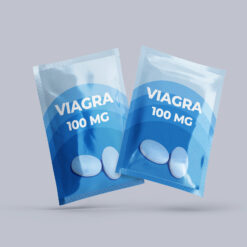Erectile Dysfunction is the inability to achieve or maintain an erection firm enough for sexual activity. It can occur occasionally or be a persistent issue.
Erectile Dysfunction
Erectile Dysfunction
Erectile Dysfunction
Advice for Erectile Dysfunction (ED)

Written & Reviewed By
What is Erectile Dysfunction?
Erectile dysfunction (ED) is a condition where you consistently find it hard to achieve or maintain an erection firm enough for sexual intercourse. Occasional difficulty with erections doesn't necessarily mean you have ED. The condition is typically defined as persistent issues that last for several weeks or months. Understanding this persistence is key to identifying ED and seeking appropriate treatment.
What causes Erectile Dysfunction?
ED can stem from a range of physical and psychological factors:
Cardiovascular Issues: Poor blood flow to the penis, often due to heart disease or clogged arteries, can cause ED. High blood pressure and high cholesterol are also significant contributors.
Neurological Disorders: Conditions like Parkinson’s disease, multiple sclerosis, or even a stroke can interfere with nerve signals that lead to an erection. These neurological factors are crucial to consider when diagnosing ED.
Hormonal Imbalances: Low testosterone or other hormonal imbalances can impact your ability to get an erection. Hormone levels should be checked as part of a comprehensive evaluation.
Medications: Certain medications for high blood pressure, depression, or prostate issues can lead to ED. It's important to review any medications you're taking with your doctor.
Surgeries: Some surgeries, particularly those involving the prostate or spinal cord, can lead to ED by affecting nerves or blood vessels that control erections.
Psychological Factors: Stress, anxiety, depression, and relationship issues can all play a significant role in ED. Psychological factors may require therapy or counseling to manage.
Medication
What It Does
Who Should Use It
Dosage Strengths
Key Ingredient
Time It Lasts
Price
Manufacturer
Cialis
A reliable solution for long-lasting ED relief.
Ideal for men looking for extended effects.
5mg, 20mg, 40mg, 60mg, 80mg
Tadalafil
Up to 36 hours
$70.00 – $485.00
Centurion Laboratories
Cenforce
Known for its effectiveness in sustaining erections.
Suitable for men who need short-term, reliable results.
50mg, 100mg, 120mg, 150mg, 200mg
Sildenafil Citrate
Up to 4 to 5 hours
$65.00 – $450.00
Centurion Laboratories
Levitra
Effective for men with health concerns like diabetes or high blood pressure.
Best for men over 50 or those with medical conditions.
10mg, 20mg, 40mg, 60mg
Vardenafil
Around 10 hours
$75.00 – $515.00
Centurion Laboratories
What Are the Treatment Options for Erectile Dysfunction?
PDE5 Inhibitors:
Medications like Viagra, Cialis, and Levitra belong to a class called PDE5 inhibitors. They work by enhancing blood flow to the penis, making it easier to get and maintain an erection. These medications are effective but should be used under a doctor's guidance due to potential side effects.
Over-the-Counter (OTC) Treatments:
While you might find OTC pills and gummies that claim to treat ED, it's important to note that these are not FDA-approved. Their effectiveness is not well-established, and they may carry risks. Always consult your doctor before trying any OTC treatments.
Lifestyle Changes:
Maintaining a healthy weight, exercising regularly, and eating a balanced diet can improve your overall health and help with ED. Limiting alcohol intake and quitting smoking are also crucial steps to managing the condition.
Psychological Treatments:
Cognitive-behavioral therapy (CBT) is a type of counseling that can help you manage the psychological factors contributing to ED. This therapy focuses on changing negative thought patterns and behaviors, leading to improved sexual function.
Hormone Therapy:
If hormonal imbalances are the cause of your ED, hormone replacement therapy might be an option. This treatment requires careful monitoring by a healthcare professional.
Why Is a Medical Evaluation Important?
A thorough medical evaluation is crucial for identifying the underlying causes of ED. This evaluation may include blood tests, a physical exam, and possibly a psychological assessment. By understanding the root cause, your doctor can recommend the most effective treatment plan tailored to your needs.
What Are the Risks of ED Treatments?
While ED treatments can be effective, they come with potential risks. PDE5 inhibitors, for instance, can cause side effects like headaches, flushing, or even more severe issues like vision changes or heart problems. Over-the-counter treatments might interact with other medications or have unknown side effects. Always discuss the risks and benefits of any treatment with your doctor.
What Is the ICD-10-CM Code for Erectile Dysfunction?
The ICD-10-CM code for ED is N52.9. This code is used by healthcare providers to document and bill for ED treatments. It's part of the International Classification of Diseases (ICD) system, which helps standardize diagnoses and treatments across healthcare settings.
Frequently asked Questions about ED Medication
What are the main causes of ED?
ED can be caused by physical factors like heart disease, diabetes, and high blood pressure, as well as psychological factors such as stress, anxiety, and depression. Lifestyle choices like smoking, excessive drinking, and lack of exercise can also contribute.
Is ED a normal part of aging?
While ED becomes more common with age, it is not a normal part of aging. It can be treated at any age, and underlying health conditions may play a bigger role.
How can I prevent ED?
You can lower your risk by maintaining a healthy diet, exercising regularly, quitting smoking, limiting alcohol, managing stress, and addressing mental health concerns. Regular check-ups to control blood pressure, cholesterol, and blood sugar levels are also important.
When should I see a doctor about ED?
See a doctor if you have trouble getting or maintaining an erection consistently, or if ED is affecting your quality of life. ED can be a sign of underlying health issues like heart disease or diabetes.
What are the treatment options for ED?
Treatment options include lifestyle changes, counseling, oral medications (like Viagra or Cialis), injectable medications, vacuum devices, or surgery. Your doctor will recommend the best treatment based on the cause.
Can stress and anxiety cause ED?
Yes, psychological factors like stress, anxiety, and relationship issues can contribute to ED. In such cases, therapy or counseling may be recommended alongside other treatments.
Are there medications that can cause ED?
Yes, certain medications like antidepressants, blood pressure medicines, and antiandrogens can cause ED. Consult your doctor if you suspect your medication is affecting your sexual function.
Is ED reversible?
ED can often be treated effectively, depending on the cause. Lifestyle changes, medication, or therapy can significantly improve erectile function in many cases.
Can ED be a sign of a serious health condition?
Yes, ED can signal serious health issues like cardiovascular disease, diabetes, or hormonal imbalances. Early diagnosis and treatment of these conditions can improve both your overall health and erectile function.
Latest guides for Erectile Dysfunction (ED)
Centurion Laboratories: The Manufacturer Behind Cenforce
Centurion Laboratories Private Limited is committed to delivering high-quality, safe, and effective healthcare solutions across [...]
06
Dec
Does Sildenafil Expire?
Yes, Sildenafil does expire. Over time, its chemical composition breaks down, reducing effectiveness and possibly [...]
26
Nov
Sildenafil and Alcohol: What You Need to Know
Sildenafil, commonly sold as Viagra, is a trusted treatment for erectile dysfunction (ED). Many people [...]
26
Nov
Vardenafil vs Sildenafil: Which ED Medication is Right for You?
Erectile dysfunction (ED) affects millions of men worldwide. Fortunately, medications like Vardenafil and Sildenafil offer [...]
26
Nov
Tadalafil vs. Sildenafil: A Comprehensive Comparison
Erectile dysfunction (ED) is a common condition that affects men of all ages. Medications like [...]
25
Nov
Where to Buy Sildenafil Citrate Online and In-Store
Sildenafil Citrate is a common medication used to treat erectile dysfunction (ED) and pulmonary arterial [...]
25
Nov

Written & Reviewed By
What is Erectile Dysfunction?
Erectile dysfunction (ED) is a condition where you consistently find it hard to achieve or maintain an erection firm enough for sexual intercourse. Occasional difficulty with erections doesn't necessarily mean you have ED. The condition is typically defined as persistent issues that last for several weeks or months. Understanding this persistence is key to identifying ED and seeking appropriate treatment.
What causes Erectile Dysfunction?
ED can stem from a range of physical and psychological factors:
Cardiovascular Issues: Poor blood flow to the penis, often due to heart disease or clogged arteries, can cause ED. High blood pressure and high cholesterol are also significant contributors.
Neurological Disorders: Conditions like Parkinson’s disease, multiple sclerosis, or even a stroke can interfere with nerve signals that lead to an erection. These neurological factors are crucial to consider when diagnosing ED.
Hormonal Imbalances: Low testosterone or other hormonal imbalances can impact your ability to get an erection. Hormone levels should be checked as part of a comprehensive evaluation.
Medications: Certain medications for high blood pressure, depression, or prostate issues can lead to ED. It's important to review any medications you're taking with your doctor.
Surgeries: Some surgeries, particularly those involving the prostate or spinal cord, can lead to ED by affecting nerves or blood vessels that control erections.
Psychological Factors: Stress, anxiety, depression, and relationship issues can all play a significant role in ED. Psychological factors may require therapy or counseling to manage.
| Medication | What It Does | Who Should Use It | Dosage Strengths | Key Ingredient | Time It Lasts | Price | Manufacturer |
|---|---|---|---|---|---|---|---|
| Cialis | A reliable solution for long-lasting ED relief. | Ideal for men looking for extended effects. | 5mg, 20mg, 40mg, 60mg, 80mg | Tadalafil | Up to 36 hours | $70.00 – $485.00 | Centurion Laboratories |
| Cenforce | Known for its effectiveness in sustaining erections. | Suitable for men who need short-term, reliable results. | 50mg, 100mg, 120mg, 150mg, 200mg | Sildenafil Citrate | Up to 4 to 5 hours | $65.00 – $450.00 | Centurion Laboratories |
| Levitra | Effective for men with health concerns like diabetes or high blood pressure. | Best for men over 50 or those with medical conditions. | 10mg, 20mg, 40mg, 60mg | Vardenafil | Around 10 hours | $75.00 – $515.00 | Centurion Laboratories |
What Are the Treatment Options for Erectile Dysfunction?
PDE5 Inhibitors: Medications like Viagra, Cialis, and Levitra belong to a class called PDE5 inhibitors. They work by enhancing blood flow to the penis, making it easier to get and maintain an erection. These medications are effective but should be used under a doctor's guidance due to potential side effects.
Over-the-Counter (OTC) Treatments: While you might find OTC pills and gummies that claim to treat ED, it's important to note that these are not FDA-approved. Their effectiveness is not well-established, and they may carry risks. Always consult your doctor before trying any OTC treatments.
Lifestyle Changes: Maintaining a healthy weight, exercising regularly, and eating a balanced diet can improve your overall health and help with ED. Limiting alcohol intake and quitting smoking are also crucial steps to managing the condition.
Psychological Treatments: Cognitive-behavioral therapy (CBT) is a type of counseling that can help you manage the psychological factors contributing to ED. This therapy focuses on changing negative thought patterns and behaviors, leading to improved sexual function.
Hormone Therapy: If hormonal imbalances are the cause of your ED, hormone replacement therapy might be an option. This treatment requires careful monitoring by a healthcare professional.
Why Is a Medical Evaluation Important?
A thorough medical evaluation is crucial for identifying the underlying causes of ED. This evaluation may include blood tests, a physical exam, and possibly a psychological assessment. By understanding the root cause, your doctor can recommend the most effective treatment plan tailored to your needs.
What Are the Risks of ED Treatments?
While ED treatments can be effective, they come with potential risks. PDE5 inhibitors, for instance, can cause side effects like headaches, flushing, or even more severe issues like vision changes or heart problems. Over-the-counter treatments might interact with other medications or have unknown side effects. Always discuss the risks and benefits of any treatment with your doctor.
What Is the ICD-10-CM Code for Erectile Dysfunction?
The ICD-10-CM code for ED is N52.9. This code is used by healthcare providers to document and bill for ED treatments. It's part of the International Classification of Diseases (ICD) system, which helps standardize diagnoses and treatments across healthcare settings.
Frequently asked Questions about ED Medication
ED can be caused by physical factors like heart disease, diabetes, and high blood pressure, as well as psychological factors such as stress, anxiety, and depression. Lifestyle choices like smoking, excessive drinking, and lack of exercise can also contribute.
While ED becomes more common with age, it is not a normal part of aging. It can be treated at any age, and underlying health conditions may play a bigger role.
You can lower your risk by maintaining a healthy diet, exercising regularly, quitting smoking, limiting alcohol, managing stress, and addressing mental health concerns. Regular check-ups to control blood pressure, cholesterol, and blood sugar levels are also important.
See a doctor if you have trouble getting or maintaining an erection consistently, or if ED is affecting your quality of life. ED can be a sign of underlying health issues like heart disease or diabetes.
Treatment options include lifestyle changes, counseling, oral medications (like Viagra or Cialis), injectable medications, vacuum devices, or surgery. Your doctor will recommend the best treatment based on the cause.
Yes, psychological factors like stress, anxiety, and relationship issues can contribute to ED. In such cases, therapy or counseling may be recommended alongside other treatments.
Yes, certain medications like antidepressants, blood pressure medicines, and antiandrogens can cause ED. Consult your doctor if you suspect your medication is affecting your sexual function.
ED can often be treated effectively, depending on the cause. Lifestyle changes, medication, or therapy can significantly improve erectile function in many cases.
Yes, ED can signal serious health issues like cardiovascular disease, diabetes, or hormonal imbalances. Early diagnosis and treatment of these conditions can improve both your overall health and erectile function.
Latest guides for Erectile Dysfunction (ED)
Centurion Laboratories: The Manufacturer Behind Cenforce
Centurion Laboratories Private Limited is committed to delivering high-quality, safe, and effective healthcare solutions across [...]
Dec
Does Sildenafil Expire?
Yes, Sildenafil does expire. Over time, its chemical composition breaks down, reducing effectiveness and possibly [...]
Nov
Sildenafil and Alcohol: What You Need to Know
Sildenafil, commonly sold as Viagra, is a trusted treatment for erectile dysfunction (ED). Many people [...]
Nov
Vardenafil vs Sildenafil: Which ED Medication is Right for You?
Erectile dysfunction (ED) affects millions of men worldwide. Fortunately, medications like Vardenafil and Sildenafil offer [...]
Nov
Tadalafil vs. Sildenafil: A Comprehensive Comparison
Erectile dysfunction (ED) is a common condition that affects men of all ages. Medications like [...]
Nov
Where to Buy Sildenafil Citrate Online and In-Store
Sildenafil Citrate is a common medication used to treat erectile dysfunction (ED) and pulmonary arterial [...]
Nov







